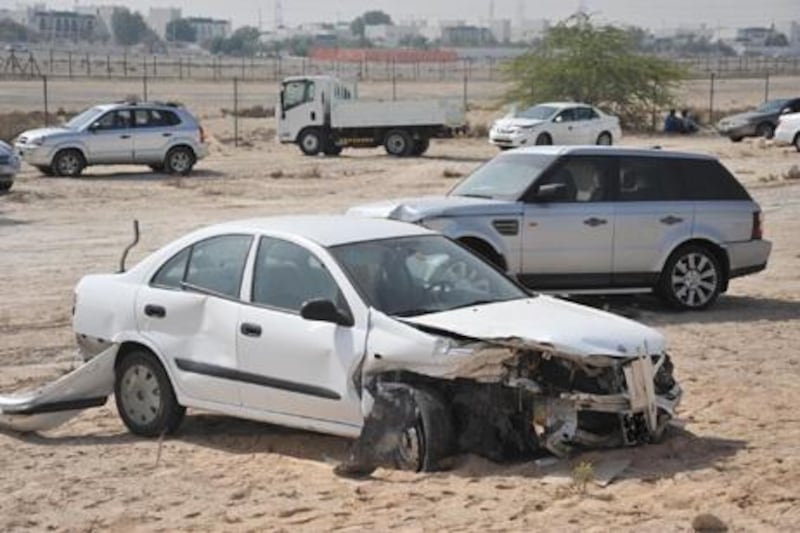Insurance companies have urged police to give them access to the safety records of UAE drivers because they say they are unable to penalise motorists who drive badly and cause accidents.
As the insurance industry in the Emirates scrambles to prepare for a deluge of claims after a 127-car pile-up on the Dubai to Abu Dhabi motorway on Saturday left one man dead and more than 60 injured, executives say a lack of access to safety records inhibits their ability to weed out bad drivers.
In other countries, the power to charge increased premiums or deny coverage to drivers with poor safety records serves as a strong incentive to drive safely. In the UAE, insurers can find out about a vehicle's accident history, but not a driver's.
Yousef Choufani, the senior manager of the motoring and underwriting department at Abu Dhabi National Insurance Company, said rating drivers could be difficult for insurers because the authorities did not publish information about motorists' safety records online.
"They promised us, but it has not been done," Mr Choufani said.
The UAE has the highest rate of road fatalities in the Middle East and one of the highest rates of deaths from traffic accidents in the world, according to the World Health Organisation.
Mr Choufani said the lack of driver safety records meant there were very few ways for companies to rate drivers.
"We request a copy of their driver's licence and we're quoting our premiums to drivers based on validity [of licence] and age," he said. "If you're below 25 years old our rating is higher than for others and there is an extra excess."
This made it difficult to provide financial incentives to drive safely, he said.
But although the police are working on a federal project linking records between the insurance companies and licensing departments, motorists' records are considered a private matter, according to Col Hussein al Harethi, the director of Abu Dhabi traffic police.
But without detailed records, insurers said they were obliged to seek other ways of rating a driver's safety record.
"As no official data exist, we identify safe drivers based on the no-claims letters from the customer's previous insurer," said Alexis de Beauregard, the chief marketing officer and head of retail products at AXA Insurance.
AXA is the largest non-life international insurer in the Mena region.
However, the legal requirement to provide car insurance alongside high levels of competition means insurers are effectively obliged to insure bad drivers at the same rate as good drivers, according to Ali Amir, the assistant general manager at Salama, the world's largest Islamic insurance, or takaful and retakaful, company.
"If I'm a bad driver and I have a major claim, I could walk into any insurance company and get insurance," Mr Amir said. "We cannot say we're not going to give insurance [to a customer]. It's against the law."
Samara receives 500 car insurance claims a month in Dubai, peaking in summer, he said. "In the month of Ramadan it becomes higher because everyone's rushing, and the claims become very high."
But the insurance industry will be able to cope with the financial impact of Saturday's pile-up, said Kevin Willis, the director of insurance ratings at Standard & Poor's.
But Mr Willis warnedsuch accidents were too rare to change drivers' behaviour.
"I think the issue is that these events, while they can be expected, they don't happen with sufficient commonality to drive the message home," he said.
The fiercely competitive car insurance market was not proving particularly lucrative for the insurance sector, he added.
"Motor insurance is a high-volume commodity market driven by the regulatory requirements to have insurance on cars," Mr Willis said.
"It's a sector considered to be highly competitive and doesn't deliver much in the way of profits to the insurance companies."
* with additional reporting by Haneen Dajani
ghunter@thenational.ae
Insurers urge police to share driver data in UAE
Insurance executives say lack of public records on driver safety means they cannot penalise bad drivers.

Editor's picks
More from the national




